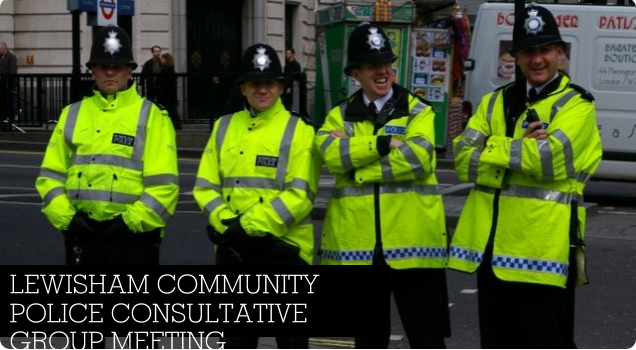A new approach to police-community relations? Blog
Ceasefire Bites, New in Ceasefire - Posted on Thursday, July 12, 2012 0:00 - 0 Comments
By Nnamdi Kalu
Earlier this month, I attended a ‘Stop and Search’ Lewisham Community Police Consultative Group (LCPCG) public meeting at the Catford Civic Centre – and came away feeling very happy.
For anyone unfamiliar with LCPCG meetings, they are essentially set up by police to engage with the community. The police offer a review of the past year, and reveal to the community their targets for the coming twelve months.
Although this was my first time attending such a meeting, there were consistent themes often present at these types of stop and search events: the racialised nature of policing, and the communities they police seem to make these meetings tense affairs.
For instance, anyone attending these meetings can usually observe the following:
1) People of different ethnic groups converging at different sides of the room
2) An atmosphere of anxiety descending on the room whenever a police officer mentions the words gang, gun, knife, Trident, – and any other useful euphemisms for the word ‘black’.
3) A Q & A session follows that seemingly always descends into a comment and discharge session.
However, this meeting was different to most, with another participant describing it as ‘neat’, apparently due to a particular gentleman called Aaron Sonson.
Aaron is a member of a team that developed an app which allows you to document your experiences after a Stop an Search. The team members had been on a course called ‘Apps for Good’, run by the non-profit organisation the Centre for Digital Inclusion.
The App, called ‘Stop and Search‘, allows you to check what your rights are and gives feedback on your experience. Sample questions include: “How much respect do you feel you were shown?” and “How cooperative do you feel you were?”. You can upload your experience along with the badge number of the officer and the number of the stop and search slip.
The Metropolitan Police Service now plan to introduce a professional qualification which will include a module on how to administer stop and search. This app will assist in increasing accountability by members of the community that are actually searched.
Police powers are a huge issue for many Londoners, particularly from Black communities. This new use of technology seeks to make the scrutinising of police powers more accessible to those who need it most – there has been only been 29 complaints in London between January and April.
When much of the world’s technological advances are destroying communities globally, it is refreshing to see it being used for good of the community. Many activists will be using this app along with the Ustream app to assist in monitoring the police during the Olympics.
With police powers and numbers increasing over the summer, it is paramount that our communities remain aware and equipped to defend themselves from the 12,000 police officers to the thousands of G4S agents and army officers patrolling the capital this coming summer.



Leave a Reply